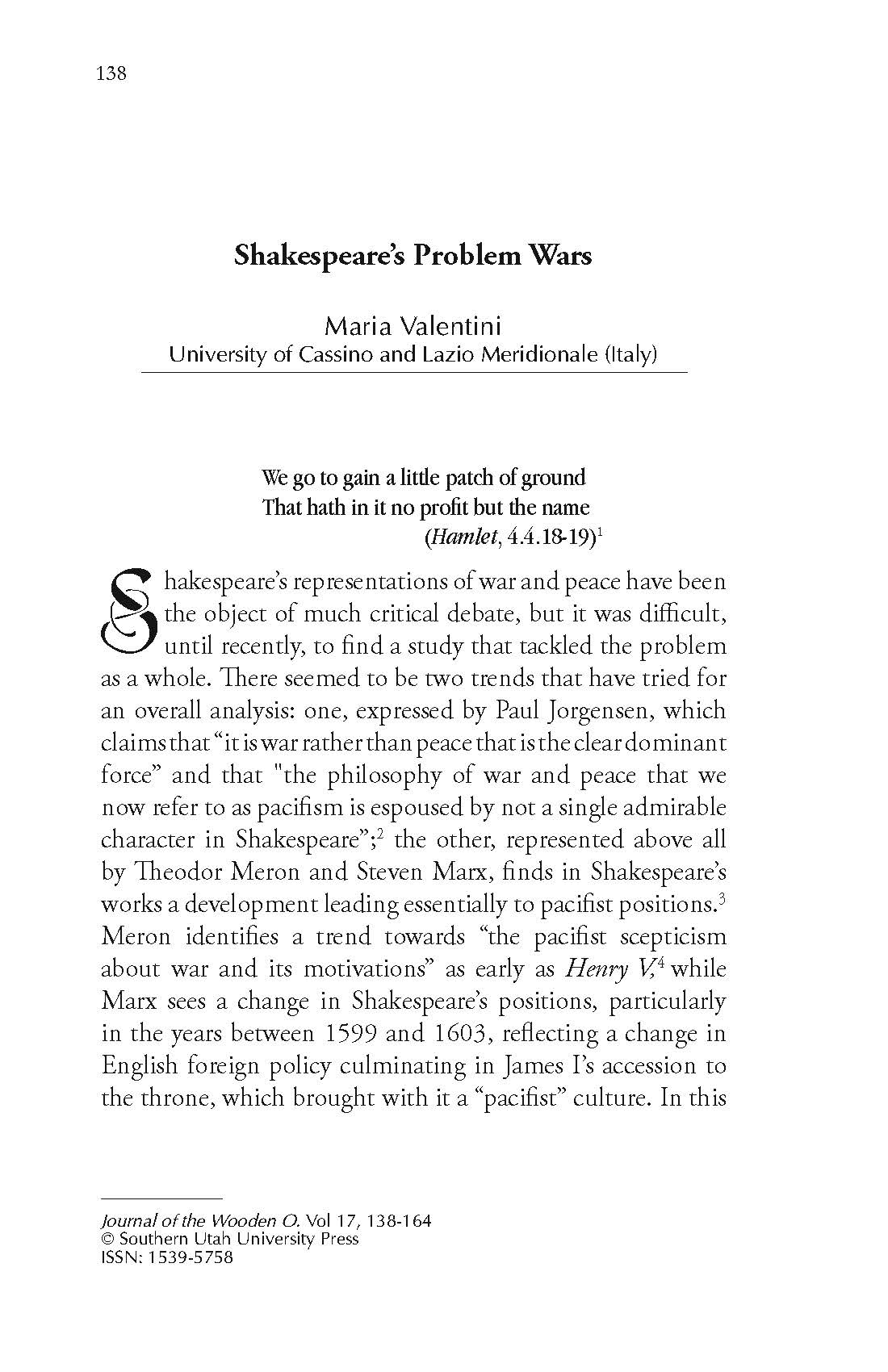Shakespeare’s Problem Wars
Main Article Content
Abstract
Shakespeare’s representations of war and peace have been the object of much critical debate, but it was difficult, until recently, to find a study that tackled the problem as a whole. There seemed to be two trends that have tried for an overall analysis: one, expressed by Paul Jorgensen, which claims that “it is war rather than peace that is the clear dominant force” and that "the philosophy of war and peace that we now refer to as pacifism is espoused by not a single admirable character in Shakespeare”;2 the other, represented above all by Theodor Meron and Steven Marx, finds in Shakespeare’s works a development leading essentially to pacifist positions.3 Meron identifies a trend towards “the pacifist scepticism about war and its motivations” as early as Henry V,4 while Marx sees a change in Shakespeare’s positions, particularly in the years between 1599 and 1603, reflecting a change in English foreign policy culminating in James I’s accession to the throne, which brought with it a “pacifist” culture. In this view, it was partly the close relation Shakespeare’s company enjoyed with the new king that dictated the choice of a work like Troilus and Cressida—significantly, from 1603—which questions the lofty justifications for war, bringing out all its futility and corruption.
